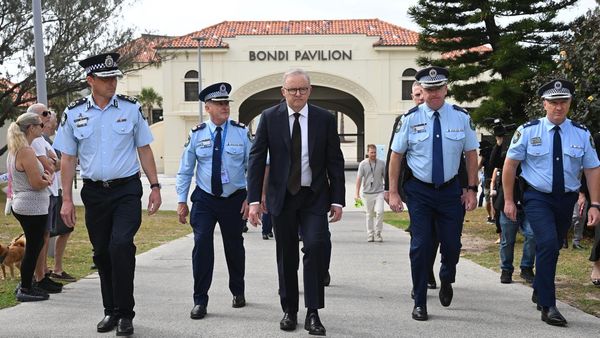
Friday’s announcement by the Royal College of Nursing that its members had rejected the pay offer on the table for NHS workers dashed any remaining hopes in Downing Street of drawing a neat line under months of debilitating strike action across the public sector.
As nurses kicked off the first strike action in the RCN’s history before Christmas, the union was demanding a pay rise of 19%. In January, its general secretary, Pat Cullen, urged the health secretary, Steve Barclay, to “meet me halfway here”, and conceded that 10% might be acceptable.
But after intensive talks with Barclay, she was effectively forced to ask her own members to meet her halfway, by accepting 5% – plus a one-off payment worth up to 8.2% – for the lowest-paid NHS staff.
Like the RCN, most other health unions, barring Unite, recommended the offer to their members. They were cheered by the fact the government had reluctantly accepted it would have to reopen the pay settlement for 2022-23.
Union sources said Barclay had appreciated for many weeks that this would have to form part of any acceptable offer, but it took him some time to win Downing Street over.
The payment for this year is just a one-off, and not part of a permanent increase (it is “non-consolidated”, in union lingo). But combined with the 5% rise from April, NHS negotiators felt the deal marked a victory of sorts – and crucially, having seen Barclay battle to get even this much out of the Treasury, that it was as far as the government would go.
Yet despite nurses having a reputation for being among the least militant of public sector workers, Cullen has been unable to take the RCN’s members with her.
Nurses’ resolve to keep fighting for a better settlement underlines their fury at the dire state of the NHS and the conditions in which they are being forced to work. But others involved in the talks also question the RCN’s handling of the dispute.
Cullen infuriated fellow health unions when she agreed to suspend strikes and go into “intensive” talks with Barclay, without the others being involved.
Some feared Cullen was hoping to win special treatment for nurses, at the expense of solidarity across the wider workforce, and that the government was hoping to “pick off” the RCN.
Ministers subsequently caved in to the reality that nurses were part of a much wider workforce, all covered by a single bargaining unit, known as “agenda for change”.
Once the other unions – which include Unison and the GMB – joined the talks, a pay offer emerged which, with the exception of Unite, the negotiators felt they could recommend.
Yet it was a far cry from the 19% the RCN had initially mooted, helping to fuel a backlash from a well-organised group of unhappy grassroots members who felt Cullen had caved in too easily.
“The RCN got itself into that position that no union negotiator should ever get into, where you come to an agreement you then have to go and sell to your members,” said one union source.
The RCN claimed as a win a promise of consultations on a new “pay spine” specifically for nurses, from 2024-25, which was set out in an open letter from Barclay. But with no detail about what that could actually mean for pay levels, it appears to have cut little ice with members.
The RCN is now gearing up for more strikes, as well as preparing for a re-ballot that could renew its mandate for further action for another six months. Cullen’s position, after she tried and failed to sell the deal to her own side, appears difficult, to say the least.
Having tried to resolve the long-running dispute, Barclay now faces a potentially fraught and complex period, with some NHS unions accepting the offer and expecting it to be paid, while others prepare to get their placards out once again.
At the same time, the junior doctors’ strike rumbles on, with a gaping chasm remaining between the 35% being demanded by the BMA’s junior doctors’ committee, and anything the government appears likely to offer – and the union refusing to call off strikes for talks to take place.
The committee’s co-chair Dr Rob Laurenson was forced to apologise for taking paid leave to attend a wedding while his colleagues were on the picket lines this week, emphasising the scrutiny the union is facing.
But there appears little sign of its members’ resolve weakening – and recent polling suggests the junior doctors retain public support, with every news report on the strikes drawing attention to the grim state of the NHS.
The message from the RCN refuseniks is that if the government wants to settle the strikes it will have to be willing to find more money. But with ministers set against loosening the purse strings, the NHS appears destined for months of fresh disruption.







